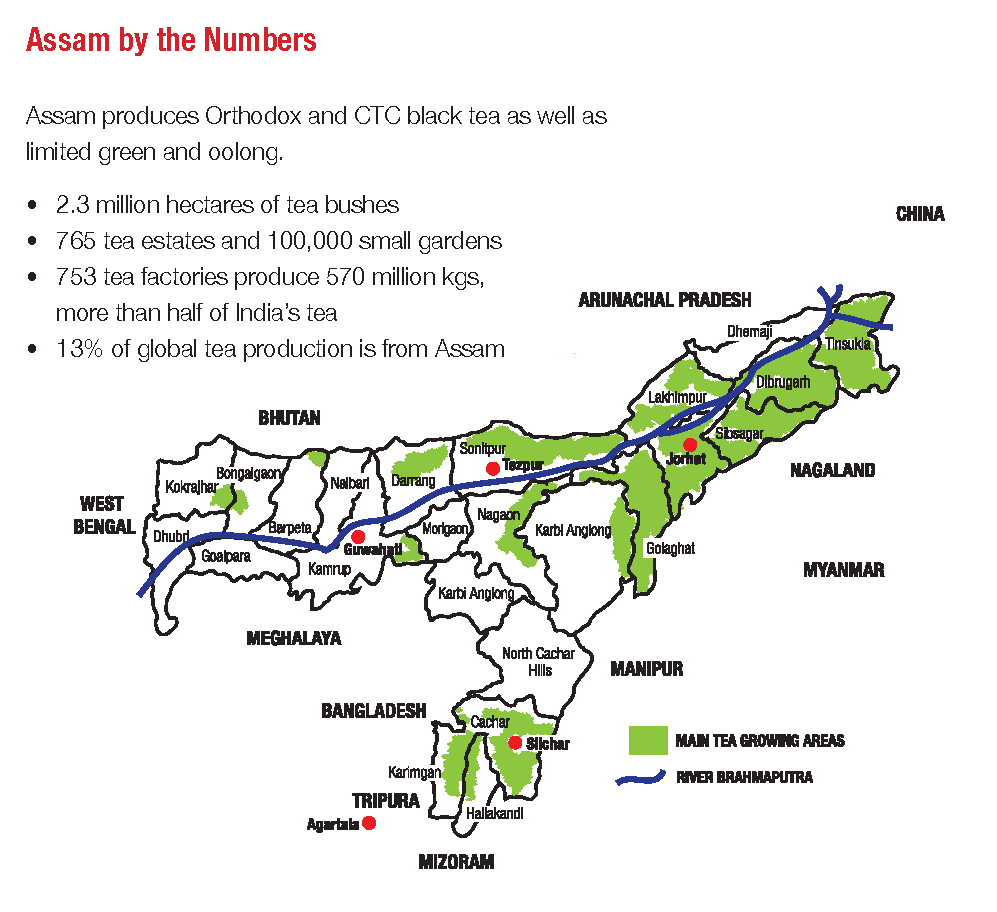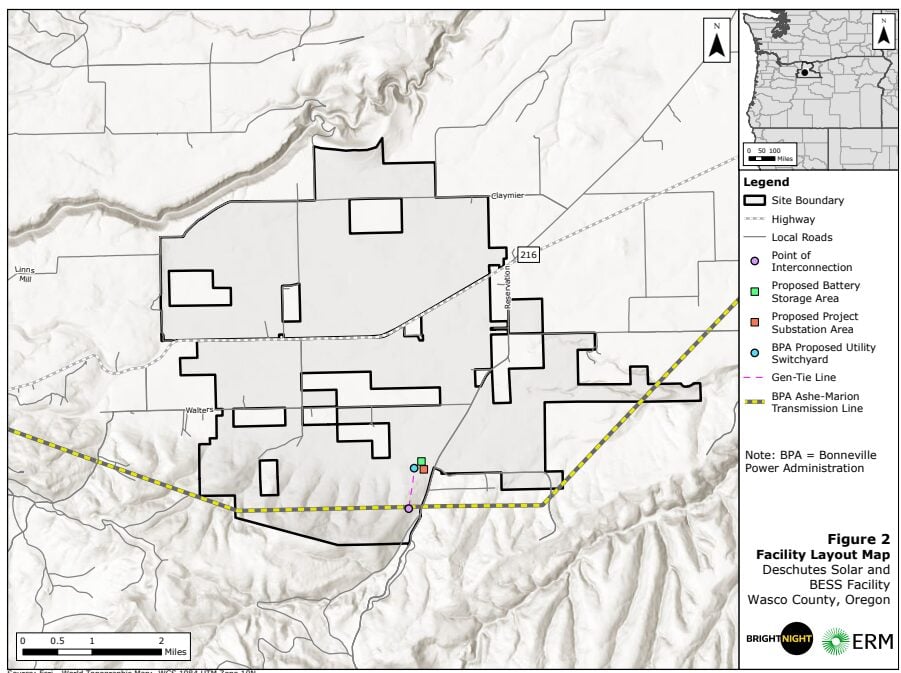Darjeeling Tea Production: Growing Concerns And Challenges

Table of Contents
Climate Change and its Impact on Darjeeling Tea Gardens
The delicate Darjeeling tea plant is highly susceptible to climatic variations. Changes in weather patterns are significantly impacting the yield and quality of Darjeeling tea production.
Shifting Weather Patterns
Erratic rainfall, unpredictable monsoons, and rising temperatures are wreaking havoc on tea bush growth. The region has witnessed a marked increase in average temperatures over the past few decades, with a corresponding shift in rainfall patterns.
- Reduced crop yield: Studies indicate a significant decline in tea yields due to prolonged dry spells and intense heat waves.
- Increased pest infestation: Warmer temperatures and altered humidity levels create ideal breeding grounds for pests and diseases, leading to increased crop damage and the need for more pesticides.
- Changes in tea flavor profile: Climatic shifts can subtly alter the chemical composition of tea leaves, impacting the distinctive muscatel flavor that Darjeeling tea is known for.
For instance, the monsoon season, crucial for tea growth, is becoming increasingly erratic, with both prolonged droughts and devastating floods becoming more frequent. Data from the Indian Meteorological Department shows a 1-degree Celsius increase in average temperatures in the Darjeeling region over the last 30 years, coupled with unpredictable rainfall patterns. In 2019, unprecedented rainfall severely damaged several tea gardens, highlighting the vulnerability of this industry to climate change.
The Threat of Pests and Diseases
Changing climatic conditions have increased the vulnerability of tea bushes to various pests and diseases.
- Increased susceptibility to blight: Blight, a fungal disease, thrives in humid and warm conditions, severely impacting tea plant health and yield.
- Infestations of tea-specific insects: Several insect species target tea plants, leading to defoliation and reduced productivity. The control of these pests is challenging, given the desire to maintain organic farming practices.
- Impact on tea quality: Pest and disease infestations directly affect the quality of the harvested tea leaves, impacting the final product's taste and aroma.
The challenge lies in finding environmentally sustainable pest control methods. Organic farming techniques, involving biological pest control and integrated pest management, are gaining traction, but they require substantial investment and expertise.
Labor Shortages and Wage Issues in Darjeeling Tea Plantations
The Darjeeling tea industry faces a severe labor crisis, significantly impacting its production capacity.
Migration of Workers
The traditional tea-picking workforce is dwindling due to out-migration to urban centers seeking better employment opportunities and higher wages.
- Shortage of skilled labor: The exodus of experienced tea pluckers results in a shortage of skilled labor, impacting the overall efficiency of tea production.
- Increased labor costs: The reduced supply of labor has driven up wages, increasing the cost of production for tea estates.
- Impact on production efficiency: The lack of skilled labor and the need to train new workers affects the speed and efficiency of tea harvesting and processing.
Socio-economic factors, including the lack of educational opportunities and better healthcare facilities in rural areas, are driving this migration. The allure of urban life and access to higher-paying jobs are compelling many young people to leave the tea plantations.
Fair Wages and Working Conditions
Ensuring fair wages and decent working conditions for tea pluckers is crucial for maintaining a stable workforce and ensuring productivity.
- Wage disputes: Conflicts over wages and benefits are common, leading to labor unrest and disruptions in tea production.
- Worker’s rights issues: Concerns about worker's rights, including safety and health standards, remain a significant challenge.
- Impact on productivity and morale: Poor wages and working conditions lead to low morale among workers, directly affecting productivity and the quality of the tea produced.
The involvement of worker unions and the implementation of stronger government regulations are crucial in addressing these issues and creating a more equitable environment for tea workers.
Sustainability Concerns and Environmental Protection in Darjeeling Tea Farming
The environmental impact of Darjeeling tea production is a growing concern, emphasizing the need for sustainable practices.
Sustainable Farming Practices
Adopting eco-friendly techniques is vital to protect the fragile ecosystem of the Darjeeling hills.
- Organic farming: Promoting organic farming practices reduces reliance on chemical fertilizers and pesticides, protecting soil health and biodiversity.
- Water conservation: Implementing efficient irrigation methods and water harvesting techniques is crucial, given the region's vulnerability to water scarcity.
- Waste management: Effective waste management systems are needed to minimize environmental pollution from tea processing.
Several Darjeeling tea gardens are already implementing successful sustainable farming initiatives, demonstrating the feasibility of environmentally conscious tea production.
Biodiversity Conservation
Preserving the biodiversity around Darjeeling tea gardens is crucial for maintaining the ecological balance.
- Protecting native flora and fauna: Protecting the natural habitats surrounding tea gardens helps maintain biodiversity and supports the overall ecosystem.
- Minimizing the use of chemical pesticides: Reducing pesticide usage protects beneficial insects and other wildlife, promoting a healthier environment.
Eco-tourism and conservation initiatives can play a critical role in raising awareness and generating funds for biodiversity conservation efforts.
Competition and Market Dynamics Affecting Darjeeling Tea Production
Darjeeling tea faces increasing competition in the global market, impacting its market share and profitability.
Global Competition
Darjeeling tea faces stiff competition from other tea-producing regions worldwide, offering lower-priced alternatives.
- Price competition: The lower cost of production in other tea-growing areas creates intense price competition for Darjeeling tea.
- Changing consumer preferences: Shifting consumer preferences toward other beverages or different types of tea demand innovative marketing strategies to maintain market share.
- Marketing strategies: Effective marketing and branding strategies are crucial to highlight the unique qualities and premium status of Darjeeling tea.
Differentiation through branding and emphasizing the unique characteristics of Darjeeling tea is key to maintaining its premium position in the global market.
Maintaining Brand Integrity
Protecting the quality and authenticity of Darjeeling tea is crucial to preserve its reputation and market value.
- Counterfeit products: The existence of counterfeit Darjeeling tea products undermines the brand's integrity and harms legitimate producers.
- Geographical indication protection: Strengthening the geographical indication (GI) protection for Darjeeling tea is vital to prevent misuse and protect its identity.
- Quality control measures: Robust quality control measures are necessary throughout the production chain to ensure that only high-quality tea reaches the consumers.
Traceability and ethical sourcing are becoming increasingly important for consumers, highlighting the need for transparency and accountability in Darjeeling tea production.
Conclusion
The future of Darjeeling tea production depends on proactively addressing the multifaceted challenges outlined above. Climate change adaptation through resilient farming practices, fair labor practices ensuring worker welfare, sustainable farming methods protecting the environment, and effective market strategies differentiating Darjeeling tea are all critical for the long-term viability of this iconic industry. Investment in research, technological advancements, and worker welfare is paramount. By tackling these issues, we can ensure the continued production of high-quality Darjeeling tea, safeguarding this precious heritage for generations. Supporting sustainable Darjeeling tea production is not merely about enjoying a delicious beverage; it's about preserving a cultural and environmental treasure. Let's collaborate to secure a prosperous future for Darjeeling tea production and its communities. Choose sustainable Darjeeling tea; choose a better future.

Featured Posts
-
 Inside The Nhls Western Conference Wild Card Playoff Standings Breakdown
May 04, 2025
Inside The Nhls Western Conference Wild Card Playoff Standings Breakdown
May 04, 2025 -
 Alzhir I Frantsiya Buduschee Sotrudnichestva Pod Ugrozoy Iz Za Ukrainy
May 04, 2025
Alzhir I Frantsiya Buduschee Sotrudnichestva Pod Ugrozoy Iz Za Ukrainy
May 04, 2025 -
 The Count Of Monte Cristo A Timeless Tale Of Revenge
May 04, 2025
The Count Of Monte Cristo A Timeless Tale Of Revenge
May 04, 2025 -
 Investigation Into Death Threat Afghan Migrants Journey To The United Kingdom And Alleged Threat Against Nigel Farage
May 04, 2025
Investigation Into Death Threat Afghan Migrants Journey To The United Kingdom And Alleged Threat Against Nigel Farage
May 04, 2025 -
 Lion Storages 1 4 G Wh Bess Project In Netherlands Financial Closure Announced
May 04, 2025
Lion Storages 1 4 G Wh Bess Project In Netherlands Financial Closure Announced
May 04, 2025
